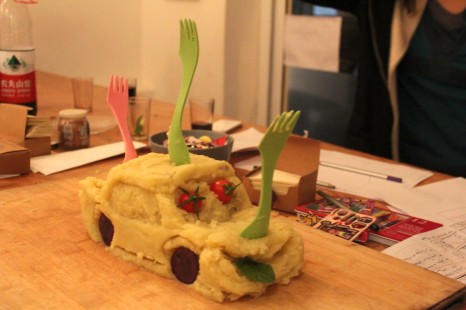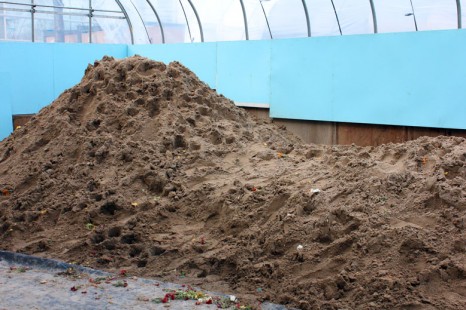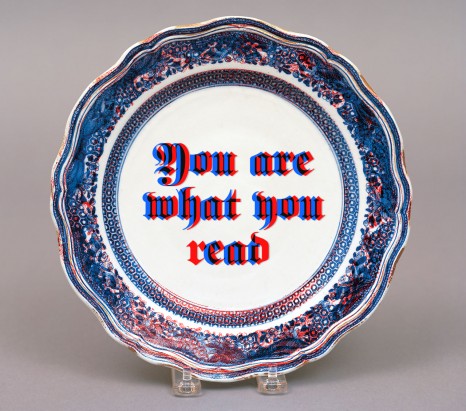
image: Céline Lamée
You are what you eat / read
你吃/读什么就像什么
Time: Sunday Dec 1st
5pm Reading Group
7pm Dining Group
Where: HomeShop 家作坊
Please RSVP to hello@concreteflux.com in advance if you want to participate in the food event as places are limited!
Food will cost 40RMB per diner.
On Sunday Concrete Flux 流泥 will be hosting a double event at HomeShop 家作坊. In one room, simultaneously, we will be running a reading and discussion group on the theory of hybridity, the theme for Concrete Flux Issue 2, and cooking hybridity-themed food under the guidance of Emi Uemura, Orianna Cacchione and Richard Gong.
The text for our reading group is Chapter One of the quintessential hybridity reading, Homi Bhabha’s The Location of Culture (pdf available here / ENG only).
Join us for an evening of thoughtful discussion at 5pm, and eating from 7pm Sunday 1st December at HomeShop.
十二月一日(本周日)《流泥》将在家作坊的一个空间中举行两个活动。《流泥》第二刊以混杂文化理论为主题,此次两个活动也围绕混杂这个主题展 开。一边是围绕混杂文化理论的阅读和讨论,另一边是Emi Uemura, Orianna Cacchione 和 Richard Gong指导我们做混杂的佳肴。
本次读书会将阅读混杂文化理论 的经典著作Homi Bhabha的《文化地标》(The Location of Culture)的第一章。(下载英文版)
邀请您本周日晚上5点在家作坊参加这两个美味的,思想性的活动。加入我们吧!
 时间 posted on: 27 November 2013 |
时间 posted on: 27 November 2013 |  发布者 author: 家作坊 HomeShop |
发布者 author: 家作坊 HomeShop |  评论 comment (0) |
评论 comment (0) |
 分类 filed under: 参与 participation, 晚饭 dinner, 混杂 hybrid, 读书小组 reading club
分类 filed under: 参与 participation, 晚饭 dinner, 混杂 hybrid, 读书小组 reading club
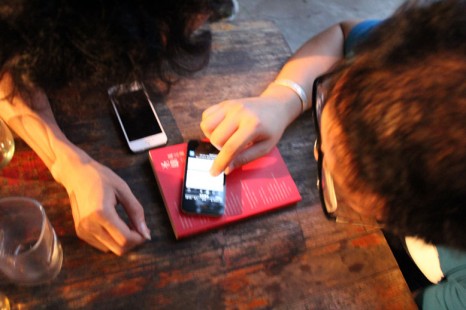
For the next meeting of the Happy Friends Reading Club, scheduled for 5 pm on Sunday, September 1st, 2013 we will cover chapters 8–10 of Who Owns the Future? by Jaron Lanier (2013… read what you can).
Following a sequence of readings on science fiction, utopia, human economies, and value, we turn to the words of “the prophet of Silicon Valley” (Simon & Schuster, publisher) to wonder whether micropayments can redeem the promises of this dystopia we have sunk into. mmm, sounds a little Utopian.
Please leave a comment if you would like to receive a copy of the text.
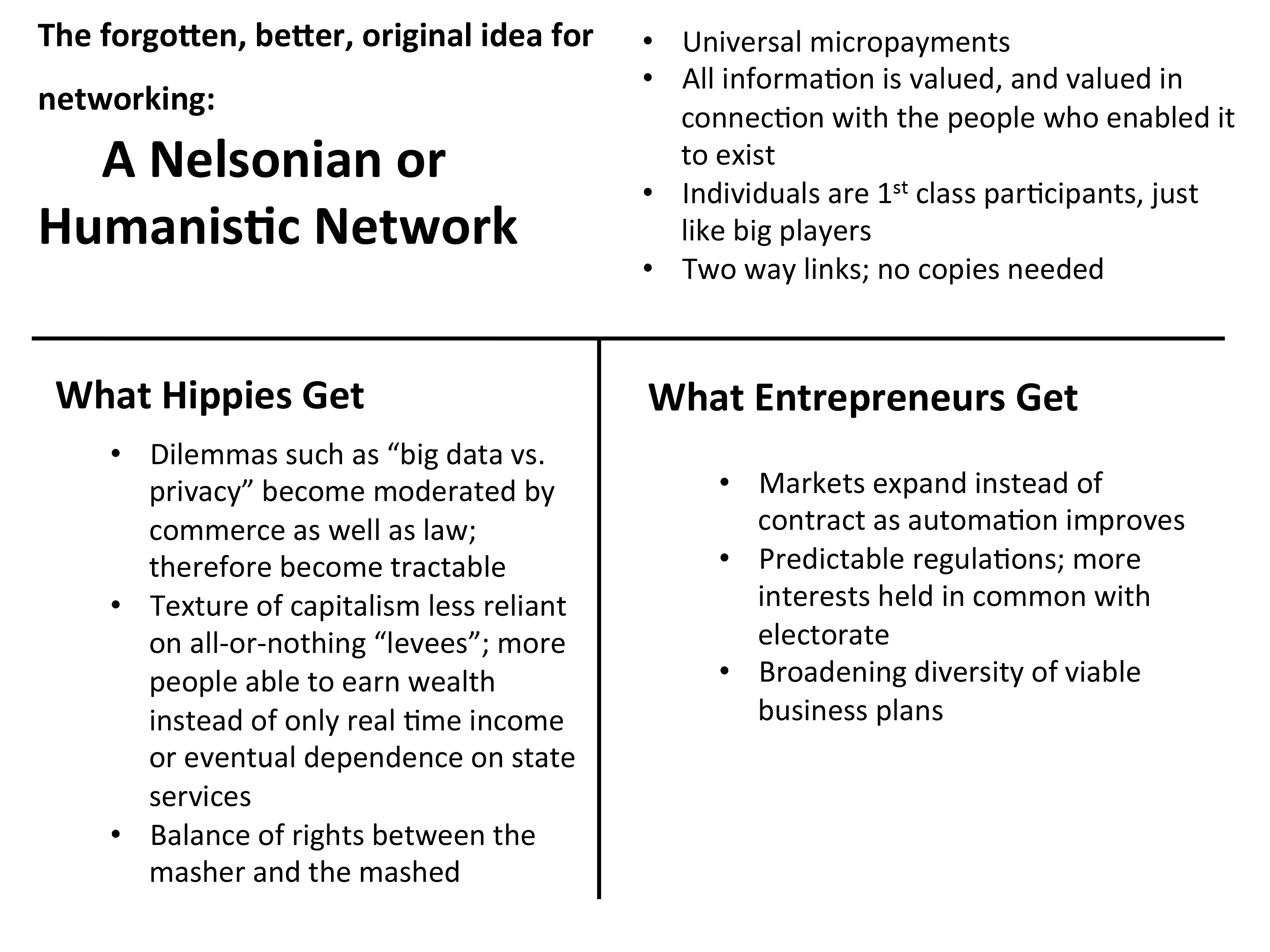
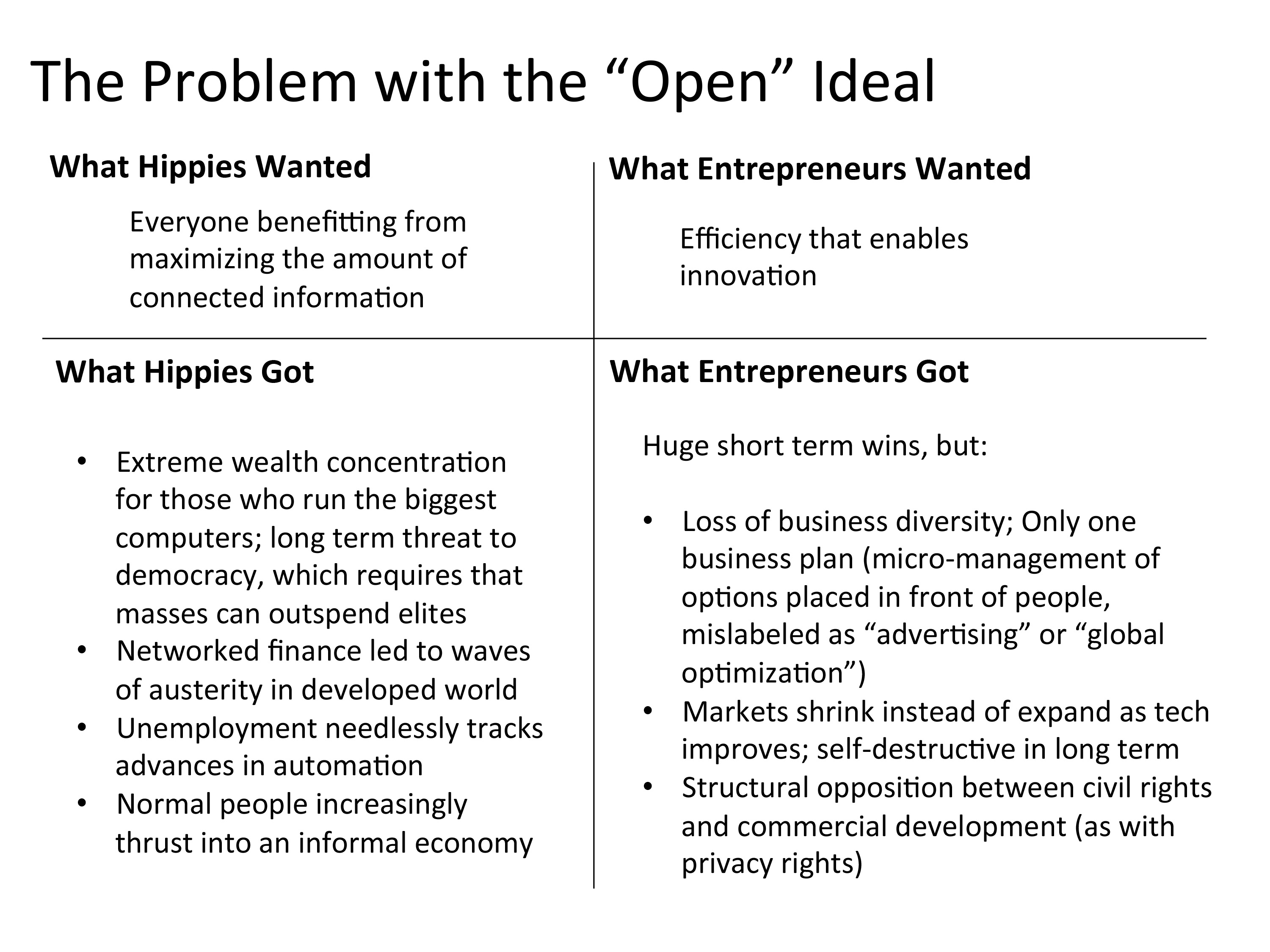
 时间 posted on: 15 August 2013 |
时间 posted on: 15 August 2013 |  发布者 author: michael eddy |
发布者 author: michael eddy |  评论 comment (0) |
评论 comment (0) |
 分类 filed under: 乌托邦 Utopia, 互联网 internet, 技术 technology, 电脑 computer, 网络 network, 读书小组 reading club, 资料 information, 钱 money
分类 filed under: 乌托邦 Utopia, 互联网 internet, 技术 technology, 电脑 computer, 网络 network, 读书小组 reading club, 资料 information, 钱 money
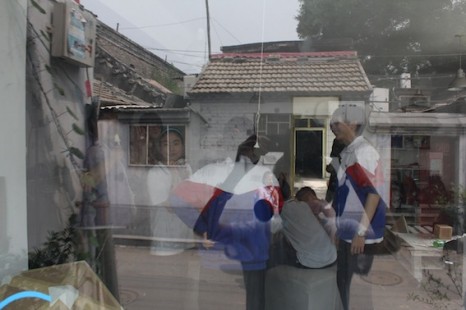
For the next meeting of the Happy Friends Reading Club, we will read the final chapter of “Toward an Anthropological Theory of Value” (2001) by David Graeber (Chapter 7: “The False Coin of our own Dreams”). The meeting will take place at 5 pm on Sunday, July 21st at HomeShop.
On a string of meetings on utopia, events, and non-visible energy—all things not quite in existence, at least not to the naked eye—we follow with a chapter from anthropologist David Graeber’s questioning of value as “blind spot” of anthropology. For even in this field, concerned with understanding cultures of the other, there is a common risk of understanding value in economic terms. From the introduction:
“If one reads a lot of anthropology, it is hard to escape the impression that theories of value are all the rage of late. One certainly sees references to ‘value’ and ‘theories of value’ all the time—usually thrown out in such a way as to suggest there is a vast and probably very complicated literature lying behind them.1 If one tries to track this literature down, however, one quickly runs into problems. In fact it is extremely difficult to find a system- atic “theory of value” anywhere in the recent literature; and it usually turns out to be very difficult to figure out what body of theory, if any, that any particular author who uses the term “value” is drawing on. Sometimes, one suspects it is this very ambiguity that makes the term so attractive.” (p. 1)
Please leave a comment for a copy of the text!
Your presence valued greatly!
 时间 posted on: 3 July 2013 |
时间 posted on: 3 July 2013 |  发布者 author: 家作坊 HomeShop |
发布者 author: 家作坊 HomeShop |  评论 comment (0) |
评论 comment (0) |
 分类 filed under: 人类学 anthropology, 值 value, 读书小组 reading club
分类 filed under: 人类学 anthropology, 值 value, 读书小组 reading club
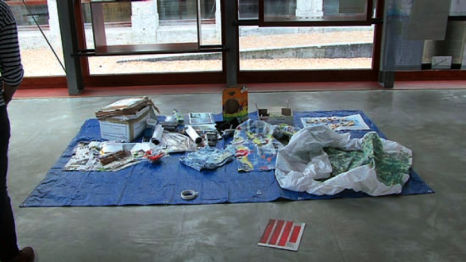
A Constructed World, Hospitality, 2001 (presented by Anna Hess, 2011)
For the following meeting of Happy Friends we will meet on Sunday June 9th at 5 pm to discuss texts from “Speech Object” (2011) by Australian artist group A Constructed World (Geoff Lowe and Jacqueline Riva). They will be present via Skype thanks to Guo Hao. When the question came out: what is this about? the following gentle suggestion was made by Geoff:
Re: speech object- how to consume?
Hey Hao
well I think maybe the best way is to read these 2 short texts
…try this at home p27
speech objects p73
both are very short
-or a bit longer
a new role or repertoire… p32
the idea is to begin to track how the audience may be involved in a work even before it is made
to think away from creation and expression ( where an art work appears from nothing)
to translation and diffusion
so with the audience rather than thinking they don’t-know ( stupid public who have to be educated)
begin to think about how any work of art may have origins in its audience.
its a prompt its not a manual
the book rose out of an exhibition in 4 parts that attempted to chart how a work and its reception could move around in space and time
hope this helps a bit!
XXGeoff
Please leave a comment to receive a link to the pdf.
 时间 posted on: 2 June 2013 |
时间 posted on: 2 June 2013 |  发布者 author: 家作坊 HomeShop |
发布者 author: 家作坊 HomeShop |  评论 comment (0) |
评论 comment (0) |
 分类 filed under: 展览 exhibition, 艺术 art, 读书小组 reading club
分类 filed under: 展览 exhibition, 艺术 art, 读书小组 reading club
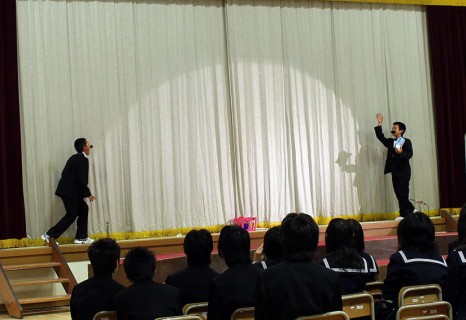
The next meeting of the Happy Friends Reading Club will be held at HomeShop on Sunday June 2nd at 5 pm.
We will discuss the contents of the brief interview After the Event: Rationality and the Politics of Invention; An interview with Alain Badiou by Radical Politics between philosopher Alain Badiou and some students who form the Radical Politics Group at the University of Essex in 2003. From our brief foray into utopian studies, we wondered, can anything happen, does history exist, in utopia? And so the question of the event.
“It is imperative to understand that an event is always relative to a situation; it is an event for the situation, and not above or outside it. Consequently, when I say that an event is beyond calculation, beyond prediction, this is naturally beyond prediction within the situation of which the event is the supplement, or the added singularity. As such, the event is not in itself unintelligible: it is unintelligible in regard to the means of prediction, of forecast, or of continuity that are those of the situation. But the intelligibility of the event is created in the fidelity to the event.” —Alain Badiou
Please leave a message if you would like to receive the text.
 时间 posted on: 18 May 2013 |
时间 posted on: 18 May 2013 |  发布者 author: 家作坊 HomeShop |
发布者 author: 家作坊 HomeShop |  评论 comment (0) |
评论 comment (0) |
 分类 filed under: 乌托邦 Utopia, 历史 history, 活动 event, 读书小组 reading club
分类 filed under: 乌托邦 Utopia, 历史 history, 活动 event, 读书小组 reading club

At the last meeting it was decided to pick through a bit more of Fredric Jameson’s book “Archaeologies of the Future” to better understand what in the Utopian separates the appeal of the deodorant ad from the dream of the egalitarian society, the conservative ideal of perfection from the progressive imagination, and how to explain this diagram?
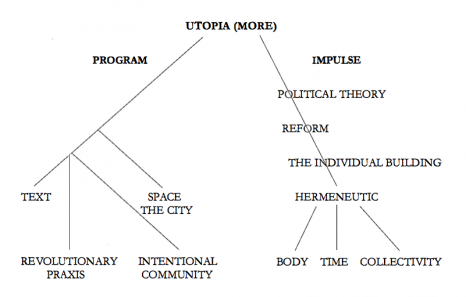
For those who would like to join, please choose a chapter or two from anywhere in the book that interests you, and see you at the next meeting at HomeShop at 5 pm on April 14th, 2013. If you are lacking a copy of this book, please leave a comment.
 时间 posted on: 1 April 2013 |
时间 posted on: 1 April 2013 |  发布者 author: michael eddy |
发布者 author: michael eddy |  评论 comment (0) |
评论 comment (0) |
 分类 filed under: 乌托邦 Utopia, 科幻小说 science fiction, 读书小组 reading club
分类 filed under: 乌托邦 Utopia, 科幻小说 science fiction, 读书小组 reading club
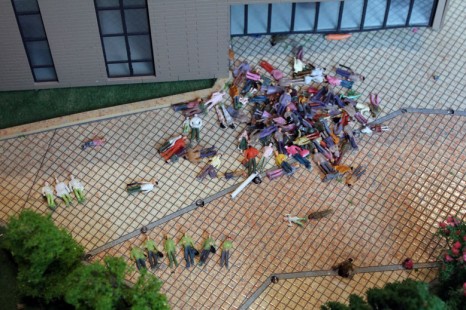
The next meeting of the Happy Friends Reading Club will take place at 5 pm on Sunday the 27th of January, 2013, at HomeShop.
We will be reading Pierre Klossowski’s “Living Currency” (1970).
Please leave a comment to receive a copy.
 时间 posted on: 13 January 2013 |
时间 posted on: 13 January 2013 |  发布者 author: michael eddy |
发布者 author: michael eddy |  comment (1) |
comment (1) |
 分类 filed under: affect, 情绪 emotion, 批判理论 critical theory, 拟像 simulacrum, 经济 economy, 行为性 performativity, 表演 performance, 读书小组 reading club, 钱 money
分类 filed under: affect, 情绪 emotion, 批判理论 critical theory, 拟像 simulacrum, 经济 economy, 行为性 performativity, 表演 performance, 读书小组 reading club, 钱 money


 时间 posted on: 27 November 2013 |
时间 posted on: 27 November 2013 |  发布者 author:
发布者 author: 
 分类 filed under:
分类 filed under: 